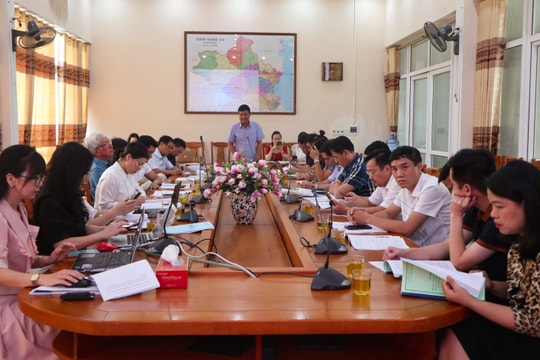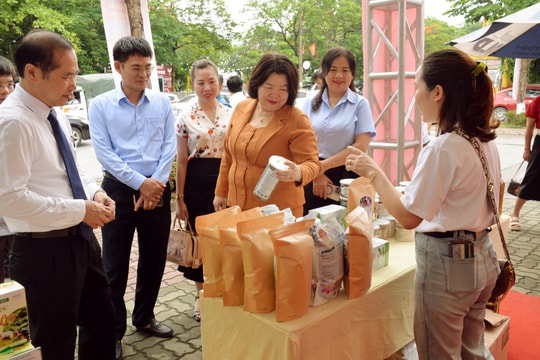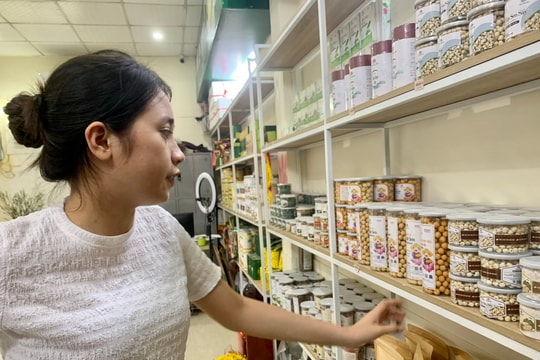Discussing solutions for developing value chain linkages and consuming OCOP products in Nghe An
Nghe An's OCOP products must meet evaluation criteria including community strength, marketing ability, and product quality.
On the morning of June 27, in Vinh city, the People's Committee of Nghe An province organized a workshop on "Developing value chain linkages and consumption of OCOP products in Nghe An province in 2024".
Attending and directing were comrade Tran Thanh Nam - Deputy Minister of Agriculture and Rural Development. Comrades: Nguyen Van De - Vice Chairman of the Provincial People's Committee; Phung Thanh Vinh - Director of the Department of Agriculture and Rural Development, Nguyen Manh Loi - Director of the Provincial Center for Investment, Trade and Tourism Promotion co-chaired the workshop.
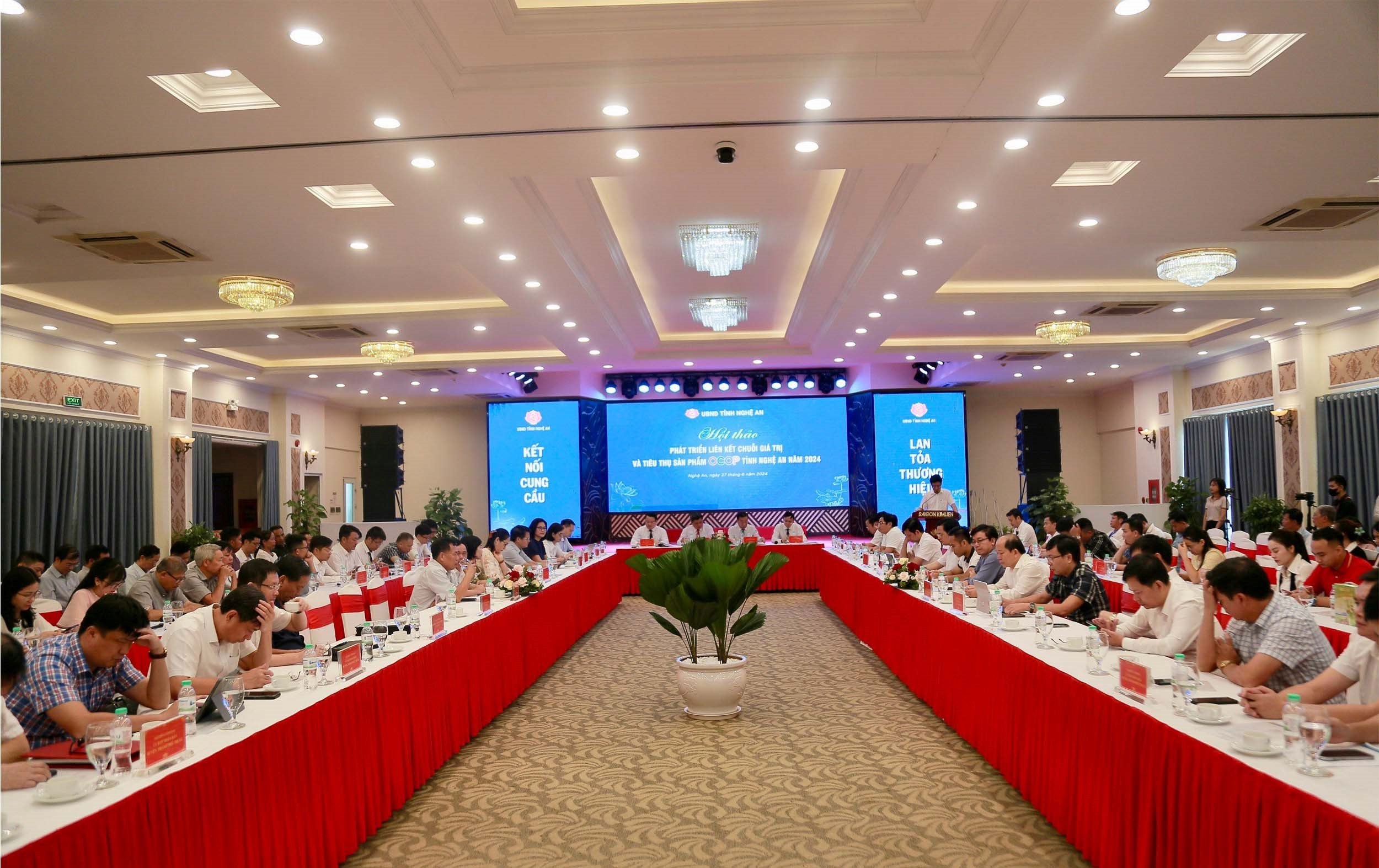
Still having difficulty finding and expanding the market
Implementing Decision No. 919/QD-TTg dated August 1, 2022 of the Prime Minister on approving the One Commune One Product Program for the period 2021-2025, up to now, the whole country has had nearly 11,000 OCOP products with 3-star quality or higher. Notably, of which up to 42 products have achieved 5-star quality, many products have become national gifts, gaining a foothold in the domestic and foreign markets. 63/63 provinces and cities have successfully developed and approved the OCOP program project.

The Ministry of Agriculture and Rural Development has also issued a handbook and a set of criteria for evaluating OCOP products, and organized training courses and supported the building of a support consulting network in 63 provinces and cities.
To date, Nghe An province has had 567 OCOP products rated 3 stars or higher, including 1 product rated 5 stars, 37 products rated 4 stars and 529 products rated 3 stars (including 11 rural tourism spots). The whole province has 110 cooperatives, 59 joint stock companies, enterprises, 55 cooperative groups and 122 households producing and trading OCOP products.
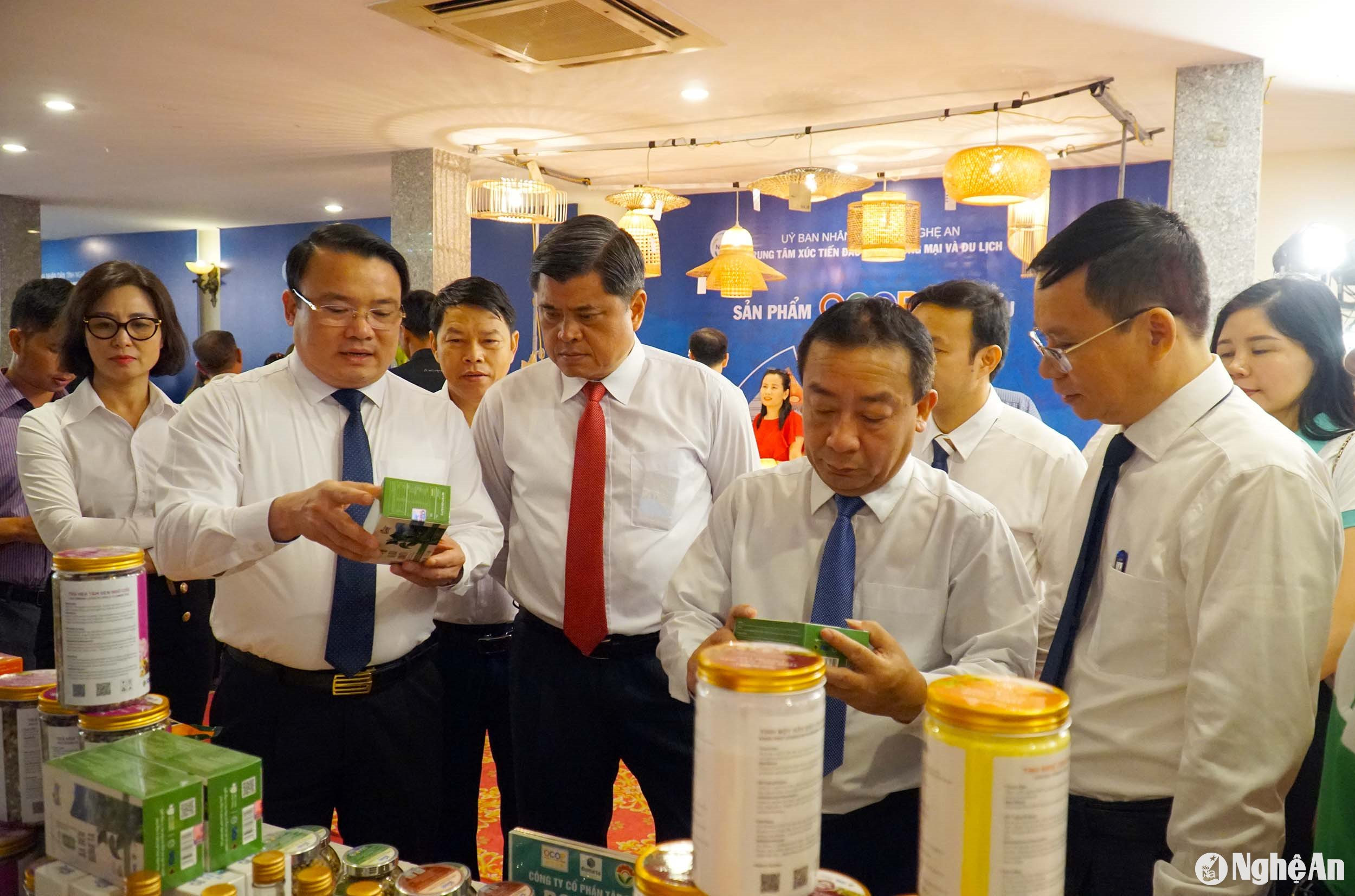
However, OCOP product development still faces many difficulties. Many products have potential and strengths but have not been exploited and registered for participation. Many subjects and products whose OCOP recognition has expired do not participate in re-evaluation and re-classification.
Many OCOP products still face difficulties in finding and expanding markets, especially export markets. OCOP products participating in modern retail chains and supermarkets are still few, and very few products are exported to major markets such as Europe, the US, Japan, Korea, etc.

In addition, localities have not really focused on supporting the development of raw material areas, traceability... to ensure quantity and quality to meet market demand. According to regulations, to upgrade a product from 3 stars to 4 stars, the subject must meet standards such as trade promotion associated with geographical indications, chain linkage, market access, origin of product ideas...
These requirements are not easy to implement for the subjects, because most of the province's OCOP products have similarities, are produced on a small scale, and are mainly freely consumed in the market. For OCOP products from 4 stars to 5 stars, it is even more difficult to upgrade to 5-star quality, in addition to the 4-star standards, there must also be a regular export market.

In fact, most of the province's OCOP product producers are small-scale, so investing in and upgrading production lines and machinery to expand production according to commodity standards requires a relatively large amount of funding. Most of the current cooperatives provide input services for members and organize seasonal production. There are not many cooperatives that organize specialized product production and processing activities. Developing value chain linkages and consuming OCOP products is still a challenge for Nghe An province.
Promoting value chain linkage
The workshop was held to discuss solutions to improve OCOP products according to value chain linkage. Nghe An's OCOP products must meet evaluation criteria including community strength, marketing ability, and product quality.
At the workshop, delegates, scientists, experts and members who are direct subjects in the value chain participated in discussions in an open, frank and responsible manner, thereby proposing directions and appropriate solutions in the coming time to fully promote the potential and advantages to develop OCOP products in Nghe An province sustainably and effectively.

With the advantage of being the leading locality in the country in terms of area, Nghe An is one of the leading provinces in the country in developing OCOP products, ranking second in terms of the number of OCOP products.
Speaking at the workshop, the Deputy Minister of Agriculture and Rural Development said: Nghe An province has all regions, favorable for the development of diverse products, such as mountainous areas can develop forestry products, midland areas develop fruit products and raw materials, delta areas with crop and livestock products to ensure food security, coastal areas for aquaculture and tourism.
“We must promote the advantages and specific conditions of each region, determine which region grows which crops and raises which animals appropriately and effectively to have appropriate and effective development solutions. At the same time, we must do a good job of linking, including linking from each field, thereby creating links along the value chain. We need to clearly understand what OCOP products are and what their value is, in order to have appropriate development solutions, develop OCOP products, and make an important contribution to shifting the structure of rural economic development,” emphasized Mr. Tran Thanh Nam.

Concluding the workshop, comrade Nguyen Van De hoped to continue receiving opinions from experts and direct participants to find specific solutions and strategic breakthrough visions to bring OCOP products and key products of Nghe An to dominate domestic and foreign markets more effectively.
The Provincial People's Committee also requested relevant departments and branches, based on their functions and tasks, to continue to advise and propose to the province and central ministries and branches on appropriate policies and solutions to focus on strengthening activities to develop value chain linkages and consume OCOP products.

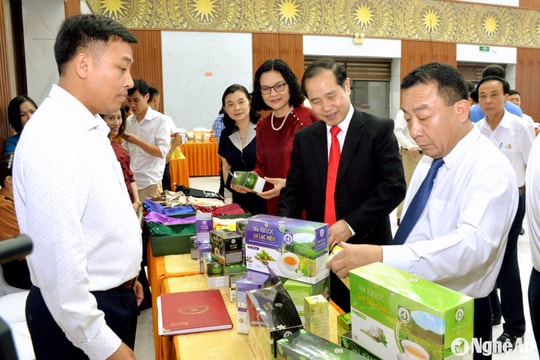
.jpeg)
